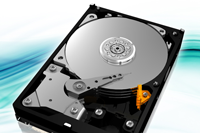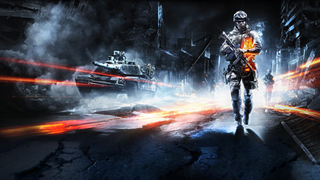Exploring SSD Performance In Battlefield 3, F1 2011, And Rift

Profiling Storage I/O In Three New Games
A little while back, we dissected the storage behaviors of Crysis 2, World Of Warcraft, and Civilization V to not only better understand how all three titles relate back to the benchmarks we run, but also the real-world experience you have with them. We received a lot of feedback in that story, not only about other games that our readers wanted to see, but also on some of the performance comparisons they wanted us to add. Namely, it was important to include a heads-up comparison of how solid-state storage fared against a hard drive.

Although that wasn't the purpose of the original story, it's certainly an understandable request. After all, it's hard to justify the premium of an SSD without a tangible real-world benefit (especially when a faster graphics card almost always does yield a noticeable performance boost). If you have questions about how an SSD might affect more pedestrian day-to-day productivity and content creation applications, check out Should You Upgrade? From A Hard Drive To An SSD; today, our focus is on the gaming experience alone.
We're still going to dive deep into an exploration of each game's storage characteristics. That's important data, since most SSD reviews are based on a handful of metrics that try to encapsulate performance, but rarely give you context on how those results correlate to gaming. Those familiar metrics include:
- 4 KB random writes
- 4 KB random reads
- 128 KB sequential reads
- 128 KB sequential writes
If those terms don't mean much to you at this point, we recommend reading Understanding Storage Performance, where we break them down. Really, the problem is that phrases like input/output operations per second and megabytes per second don't really mean anything to gamers interested in how storage technology affects the launch times and performance of the latest titles.

As a continuation of our previous exploration, we decided to revisit this topic using three new games in order to give you a better understanding of how they tax your storage subsystem. Battlefield 3 (representing the first-person shooters), F1 2011 (holding it down for racing sims), and Rift (the latest craze in MMORPGs) all get tested this time around.
Stay on the Cutting Edge
Join the experts who read Tom's Hardware for the inside track on enthusiast PC tech news — and have for over 25 years. We'll send breaking news and in-depth reviews of CPUs, GPUs, AI, maker hardware and more straight to your inbox.
Current page: Profiling Storage I/O In Three New Games
Next Page Test Setup And Benchmarks-
clonazepam Makes sense. I'll install sw:tor to the ssd after i figure out how to make its 20GB fit on it lol... the rest go to the HDD...Reply
Good read. Thanks for being so thorough. -
IMO, a WD Caviar Black or a Samsung Spinpoint F3 would have been a better test drive than the Green one.Reply
-
christoforo Thanks to all the reviews you made here guys. A couple of months ago I started planning my ssd purchase, and i decided to buy a Kingston HyperX 240gb bundle kit. I cant wait till it arrives. I have advanced computer skills, so many things I thought from personal experiences are published here, like I knew some games are more write dependant or read dependant from and HDD, and about the apps on the background on WIN7, and many many more. I already ordered my SSD, but its nice to have a serious review about ssds on gaming performance. Its all about the speed that the apps can be done by write/read on a ssd on the background that really matters, from this simple thing is that anyone willing to upgrade to an ssd can benefit with a smoother playable experience.Reply -
gmcizzle Storage can actually make a difference in FPS in certain situations. Only put in 2gb or so of RAM in the test system and rerun Battlefield 3, and the difference in frame rates will be different between HDD and SSD as the game switches to secondary storage once RAM is exhausted.Reply -
Supernova1138 True, but it is much more cost effective to add more RAM to your system in that circumstance than to get an SSD large enough for your OS and a couple of games. With RAM so inexpensive these days there is absolutely no reason to be running low on it under any gaming scenario.Reply -
cumi2k4 Agreed with xyzqwerty, please do another test with faster drives such as wd black or the f3. Comparing the ssd with green version is like racing your turtle with the neighbor's hare.Reply -
acku cumi2k4Agreed with xyzqwerty, please do another test with faster drives such as wd black or the f3. Comparing the ssd with green version is like racing your turtle with the neighbor's hare.Reply
I'm a little confused why you would want to see that comparison. We established there was no diff between a slow HDD and a fast SSD. And you expect a difference between a fast HDD and fast SSD?
Cheers,
Andrew Ku
TomsHardware.com -
silverblue asnorton44Interesting to see it won't imrpove all gameplayI see what you did there. :PReply -
FunSurfer Reply9523292 said:I'm a little confused why you would want to see that comparison. We established there was no diff between a slow HDD and a fast SSD. And you expect a difference between a fast HDD and fast SSD?
Cheers,
Andrew Ku
TomsHardware.com
He probably want to see that comparison on the "Hard Drive Performance Comparison" page, where is a big difference between SSD and HDD performance (the HDD up to 477% slower)
Most Popular


